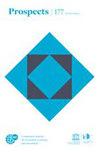Governance mechanisms, school principals and the challenge of personalized education in contexts
Q1 Social Sciences
引用次数: 0
Abstract
Abstract Schools around the world are diverse and there are a variety of progressivist initiatives in place that aim to promote quality and equitable pedagogy and overcome formalist paradigms. Country contexts present different challenges based on factors such as the type of governance, teachers’ autonomy, and pedagogical cultures. Most critical, however, is the unequal distribution of leadership opportunities. Beyond conflicting or contrived possibilities in school leadership arrangements and cultures, it should be recognized that certain contexts lack effective leadership as an organizational quality. Nevertheless, school principals are able to create coherent environments, offering space for debate and clarification of what equity and equality mean in terms of curriculum delivery, as well as supporting school-level structural facilitations and adaptations. This is a conceptual paper, at the crossroads of different research strands. It focuses on governance mechanisms and leadership tasks and skills in pedagogical and organizational school cultures. It argues that well-articulated school organization is needed, not only in terms of autonomy, but also with the possibility to collaborate, develop professionally, and engage locally in order to achieve equitable student-oriented teaching. The aim is to investigate the feasibility of supporting personalized and adaptive teaching strategies at the school level, in a variety of country contexts.治理机制、学校校长与个性化教育的挑战
世界各地的学校是多种多样的,有各种各样的进步主义举措,旨在促进质量和公平的教学,克服形式主义范式。根据治理类型、教师自主权和教学文化等因素,国家背景提出了不同的挑战。然而,最关键的是领导机会的不平等分配。除了学校领导安排和文化中相互冲突或人为的可能性之外,应该认识到,某些情况下缺乏有效的领导作为一种组织素质。然而,学校校长能够创造连贯的环境,为辩论和澄清公平和平等在课程交付方面的含义提供空间,并支持学校层面的结构便利和适应。这是一篇概念性论文,处于不同研究方向的交叉点。它侧重于教学和组织学校文化中的治理机制和领导任务和技能。它认为,为了实现公平的以学生为导向的教学,良好的学校组织是必要的,不仅在自治方面,而且在合作、专业发展和地方参与的可能性方面。其目的是调查在不同国家背景下,在学校一级支持个性化和适应性教学策略的可行性。
本文章由计算机程序翻译,如有差异,请以英文原文为准。
求助全文
约1分钟内获得全文
求助全文
来源期刊

Prospects
Social Sciences-Education
CiteScore
13.10
自引率
0.00%
发文量
37
期刊介绍:
Prospects provides comparative and international perspectives on key current issues in curriculum, learning, and assessment. The principal features of the journal are the innovative and critical insights it offers into the equitable provision of quality and relevant education for all; and the cross-disciplinary perspectives it engages, drawing on a range of domains that include culture, development, economics, ethics, gender, inclusion, politics, sociology, sustainability, and education.
Prospects aims to influence a wide range of actors in the field of education and development, whether academics, policy-makers, curriculum-developers, assessors, teachers or students. Unlike other journals in the field, which deal only with theoretical or research-related aspects, Prospects also focuses on policy implementation and aims at improving the extent and effectiveness of communication between theorists and researchers, on one side, and policy makers and practitioners, on the other.
The journal thus welcomes innovative empirical research, case studies of policy and practice, conceptual analyses and policy evaluations, as well as critical analyses of published research and existing policy.
Founded in 1970 and published in English by Springer, Prospects is among the most well-established journals in the field. Editions in Arabic and Mandarin Chinese are available as well.
The journal is edited by the International Bureau of Education (IBE), in Geneva. A leading UNESCO Institute and a global center of excellence in curriculum and related matters, the IBE is recognized and valued for the specialist knowledge and expertise that it brings to Member States, promoting new shared global understanding of curriculum, teaching, learning, and assessment.
 求助内容:
求助内容: 应助结果提醒方式:
应助结果提醒方式:


